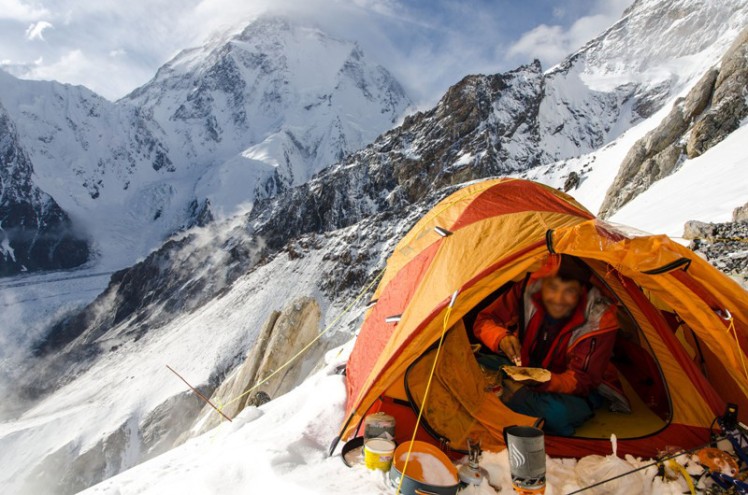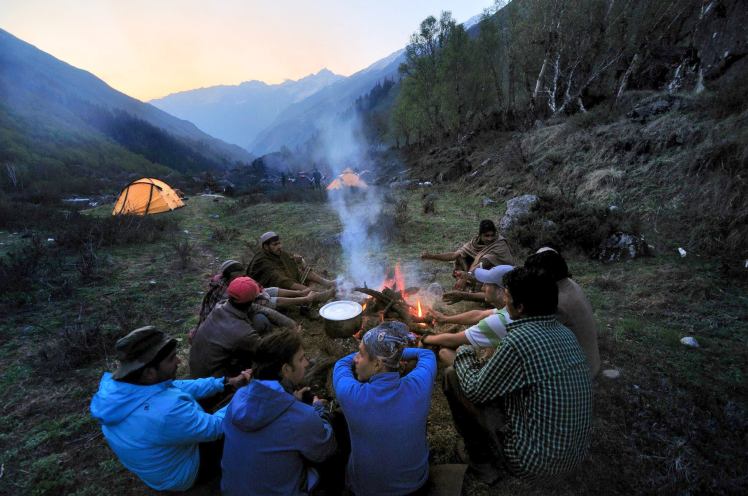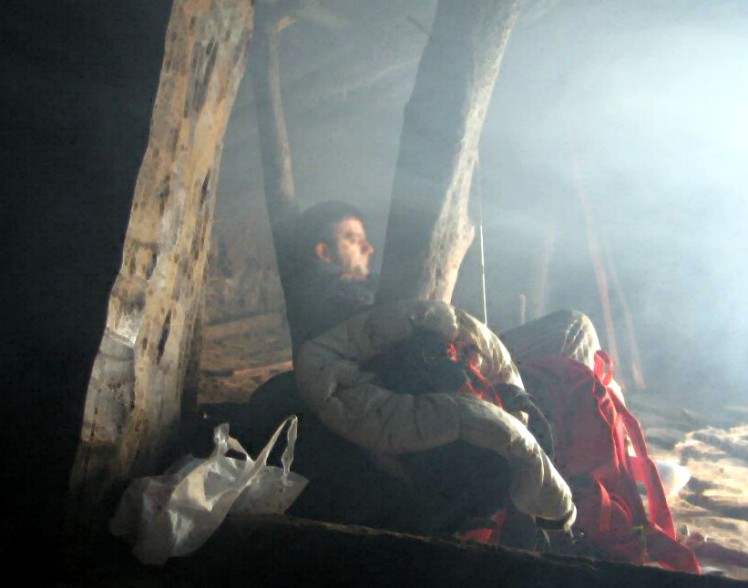
Poor sleep is common at high altitude. Most trekkers don’t sleep well at a higher altitude. Trekkers commonly report intense dreams, feeling of being suffocated and wake up feeling unrefreshed.
Trekkers arriving at higher altitude commonly experience poor quality sleep. Sleep at a higher altitude can become fitful and difficult. High altitude can have many effects on the body. Oxygen which is at 20.8% (approx.) at sea level dwindles to 13% at an altitude of 3,600 meters. The lack of oxygen causes the preliminary disturbance in the sleep pattern. It causes rapid breathing to maintain proper oxygen flow. The rapid intake of oxygen also causes a faster rate of Carbon dioxide release. The carbon dioxide sensors in the body try to control the rapid release by slowing the rate of exhaling of CO2. Due to these adjustments in fast and slow breathing, a trekker experiences a disturbed sleep pattern (Sleep Apnea).
We take this opportunity to acknowledge the importance of sleep in a high altitude Trek. After careful examination of the sleep architecture at high altitude, we come out with few handy tips for trekkers. We hope they come in handy.
Tip #1: Focus on being properly acclimatized on a Trek
Acclimatization is the biggest consideration for any high altitude trekking. Poor Acclimatization triggers a range of symptoms that take away the fun of trekking. Issues of trekkers complaining about hypoxia, hypoventilation, sleep apnea are sometimes linked with Acute Mountain Sickness. It is wise to sleep at an intermediate altitude for one or more days before sleeping at the higher altitude to help the body cope with the altitude. Some trekkers notice that this helps quite a bit, while others still have trouble with the higher altitude; some don’t face any problems at all.
Click here to read more on how to avoid altitude sickness on a Himalayan Trek
Tip #2: Stay hydrated and avoid alcohol/caffeinated beverages on a Trek
While trekking, the fluid loss via sweat can be extreme. Dehydration can inhibit the production of sleep-promoting chemicals causing poor sleep. The fluid loss comes in many forms. At high altitude, rapid breathing causes an accelerated fluid loss. With every breath, we lose fluid in the form of vapor. Those who breathe through the mouth are susceptible to faster loss of fluids.
Click here to read more on How to stay hydrated on a Himalayan Trek
Those who take Diamox (Acetazolamide) need to be extra careful. Diamox is a diuretic drug that causes more fluid loss via your urine.
Finally, keep in mind that alcohol acts to ultimately dehydrate the body, so do not make the mistake of relying on an alcoholic beverage to help you sleep. The same goes for Coffee before sleep.

Tip #3: Eat a light Dinner Meal on a Trek | Avoid Junk Food
Eating a heavy dinner is bad for you on a Trek. Consuming a heavy meal at night overloads your digestive system. It doesn’t get adequate rest through the night, thereby slowing your body physically and mentally for the next day. Avoid a high sugar, fat, protein diet at night. This will help you avoid acidity, keeping the tummy problems at bay in the night. You should have your dinner by 7 PM and sleep not before 9 PM. This will help to sleep better.
Having said that, one should not skip this meal either. Skipping Dinner will result in a very large gap between your last meal of the day and the first meal of the next day. This can cause ravenous hunger, severe acidity, nausea, blackouts and a disturbed sleep.
Tip #4: Keep your mobile devices away before Sleeping
Using Mobile and other portable devices can be great fun at campsites. It can keep you entertained on a bad weather day inside your tent. However, they are not always helpful. Light from these devices stimulates the brain, making it harder to wind down for sleep. So Turn off your phone, I-Pad, Kindle Paperwhite at least an hour before sleeping.
Tip #5. Use a Nasal Spray
This is a useful tip that many people miss. A nasal spray helps keep a general nasal hygiene to keep the nose free of dust, pollen, etc. It can be very useful for those who suffer from difficulty in breathing due to nasal congestion. Taking 1-2 (drops or sprays) in each nostril before going to sleep.
Nasal Spray comes in different variants. The strong (more effective) one has Oxymetazoline Hydrochloride as a key ingredient. It works by shrinking swollen and congested nasal tissues (mucous membranes) by constricting blood vessels. This should not be used more than 3 to 5 days without consulting with a Doctor. Saline Nasal Solution, on the other hand, is mild and safer option. It has Sodium Chloride which works like a salt based solution in cleaning your nose. It has no side effect if used regularly.

Tip #6. Change your Sleeping Posture
Sometimes countering sleep discomfort requires out of the box approach. Eating large meals or lying down right after a meal can cause heartburn, bloating of the stomach and acidity. This can hamper sleep. Sleeping on your back can cause the acid in the stomach to enter your Esophagus. This can cause the windpipe to contract, causing shortness of breath, cough, burping etc. Sleeping in an elevated position can help. An elevated head helps prevent the acid from causing coughing, breathing and other digestion-related problems that interfere with one’s sleep. Use your backpack or a few extra clothes as an elevated pillow. Raise your head sleeping position by 20 to 30 degree upward. This will help you to ease out and breathe better.
Lead Picture Credit: SummitPost.org
Any reproduction of this Blog (including Pictures) without obtaining a written permission will be subject to copyright violation. Strict Legal action will be taken. You may write to us at vaibhav@wanderthehimalayas.com for such requests.

Eating less could be problematic during night. food provide necessary heat.always keep an energy bar in a
sleeping bag
LikeLike
Lovely write up. Although I haven’t encountered this issue, personally but I have heard fellow trekkers complain about sleep issues. Many first time trekkers have problems with tent and sleeping bags too. This write up will help trekkers adapt better and enjoy the trek.
LikeLiked by 1 person
Thanks Arvind!
LikeLike
Quite a detailed and informative write-up.
This will help many new trekkers.
LikeLiked by 1 person
Thank you Hitesh!
LikeLike
A very useful informative blog for beginners. I really liked the blog
LikeLike
Thank you.
LikeLike